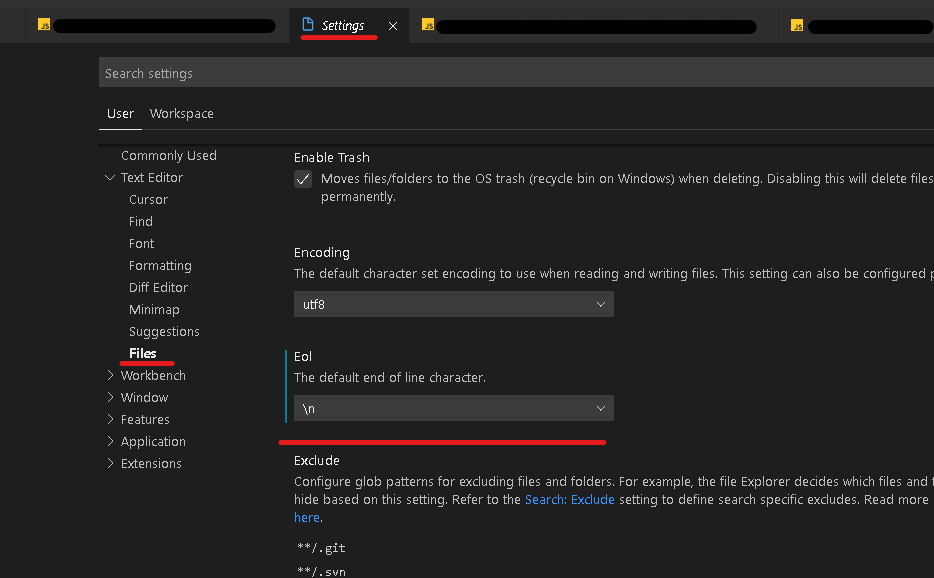Both existing answers are helpful but not what I needed. I wanted to bulk convert all the newline characters in my workspace from CRLF to LF.
I made a simple extension to do it
https://marketplace.visualstudio.com/items?itemName=vs-publisher-1448185.keyoti-changeallendoflinesequence
In fact, here is the extension code for reference
'use strict';
import * as vscode from 'vscode';
import { posix } from 'path';
export function activate(context: vscode.ExtensionContext) {
// Runs 'Change All End Of Line Sequence' on all files of specified type.
vscode.commands.registerCommand('keyoti/changealleol', async function () {
async function convertLineEndingsInFilesInFolder(folder: vscode.Uri, fileTypeArray: Array<string>, newEnding: string): Promise<{ count: number }> {
let count = 0;
for (const [name, type] of await vscode.workspace.fs.readDirectory(folder)) {
if (type === vscode.FileType.File && fileTypeArray.filter( (el)=>{return name.endsWith(el);} ).length>0){
const filePath = posix.join(folder.path, name);
var doc = await vscode.workspace.openTextDocument(filePath);
await vscode.window.showTextDocument(doc);
if(vscode.window.activeTextEditor!==null){
await vscode.window.activeTextEditor!.edit(builder => {
if(newEnding==="LF"){
builder.setEndOfLine(vscode.EndOfLine.LF);
} else {
builder.setEndOfLine(vscode.EndOfLine.CRLF);
}
count ++;
});
} else {
vscode.window.showInformationMessage(doc.uri.toString());
}
}
if (type === vscode.FileType.Directory && !name.startsWith(".")){
count += (await convertLineEndingsInFilesInFolder(vscode.Uri.file(posix.join(folder.path, name)), fileTypeArray, newEnding)).count;
}
}
return { count };
}
let options: vscode.InputBoxOptions = {prompt: "File types to convert", placeHolder: ".cs, .txt", ignoreFocusOut: true};
let fileTypes = await vscode.window.showInputBox(options);
fileTypes = fileTypes!.replace(' ', '');
let fileTypeArray: Array<string> = [];
let newEnding = await vscode.window.showQuickPick(["LF", "CRLF"]);
if(fileTypes!==null && newEnding!=null){
fileTypeArray = fileTypes!.split(',');
if(vscode.workspace.workspaceFolders!==null && vscode.workspace.workspaceFolders!.length>0){
const folderUri = vscode.workspace.workspaceFolders![0].uri;
const info = await convertLineEndingsInFilesInFolder(folderUri, fileTypeArray, newEnding);
vscode.window.showInformationMessage(info.count+" files converted");
}
}
});
}


